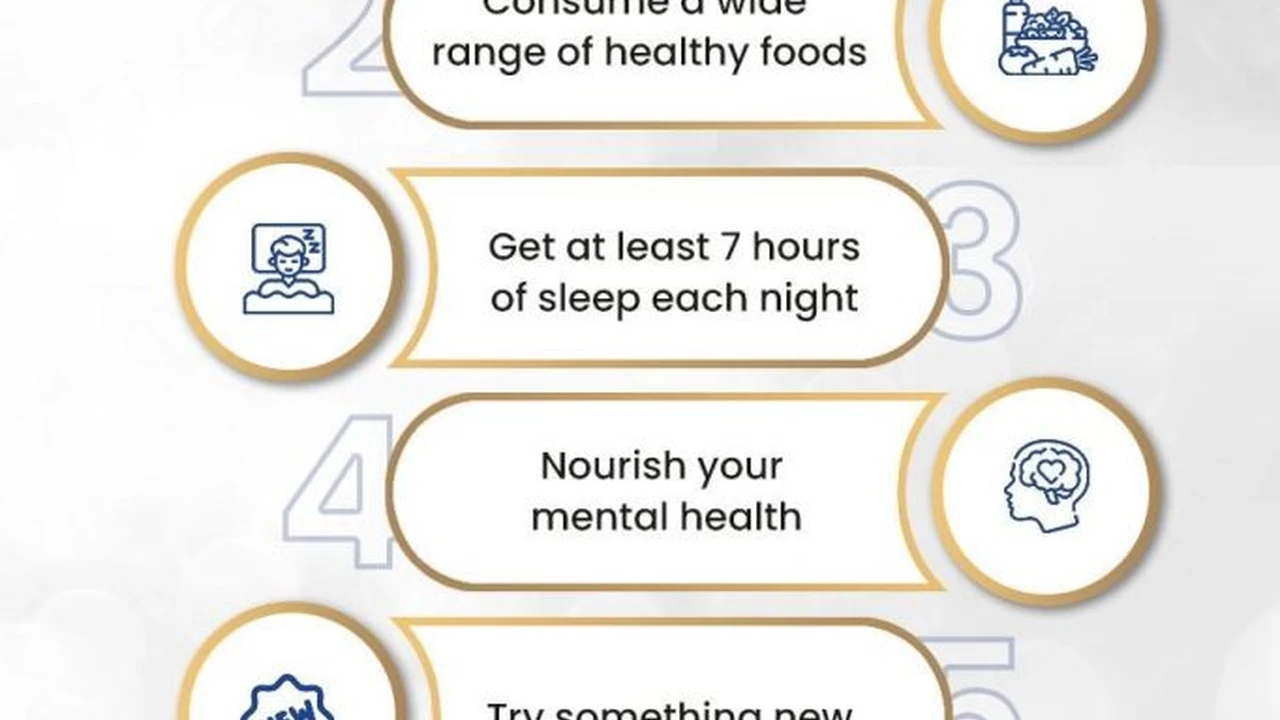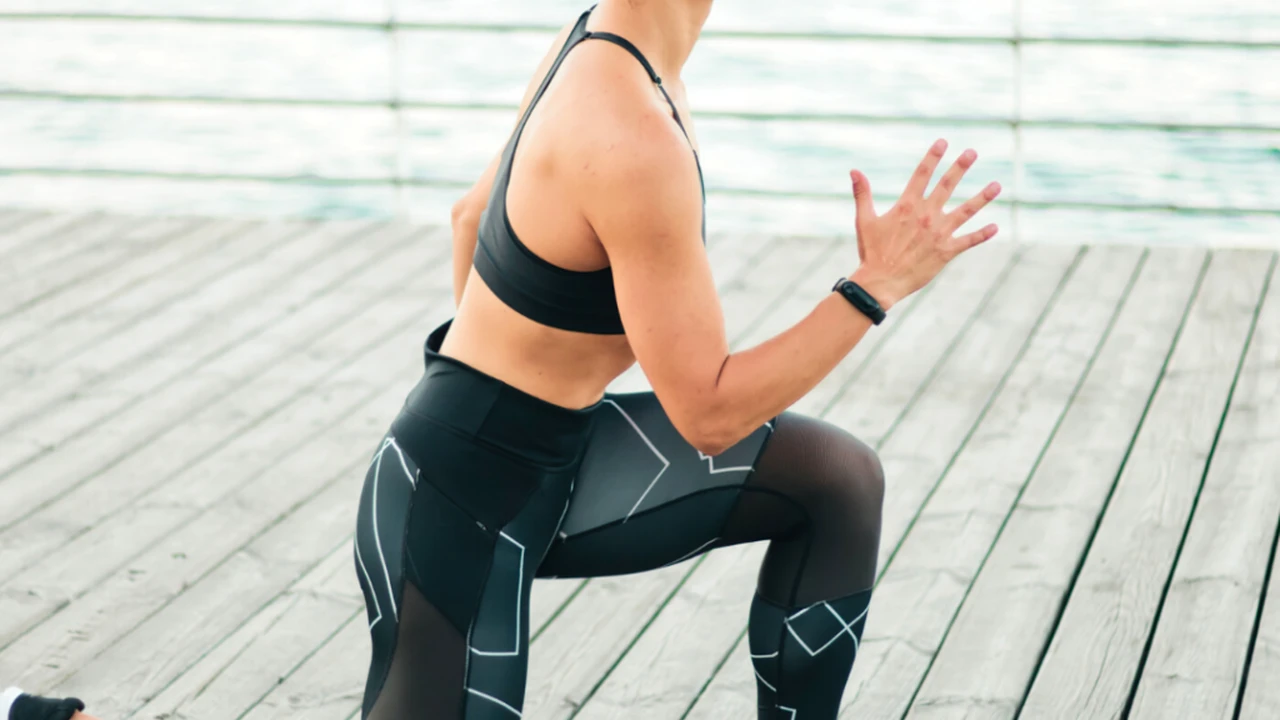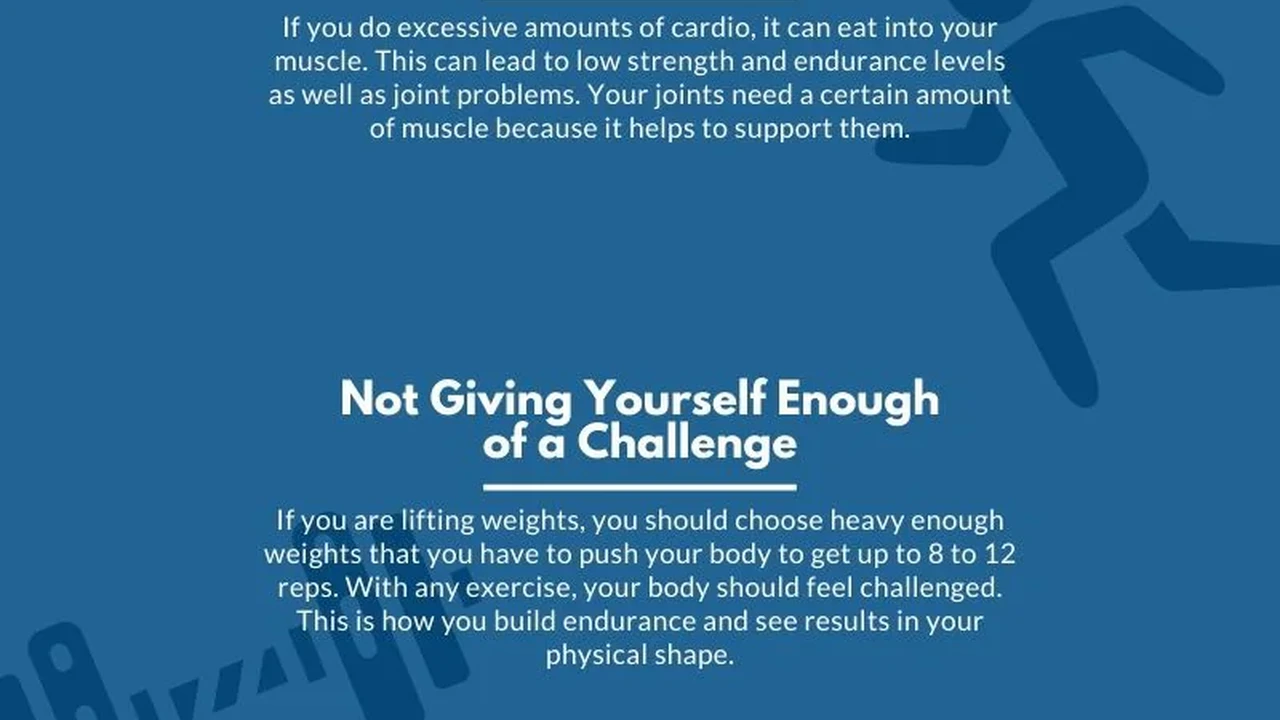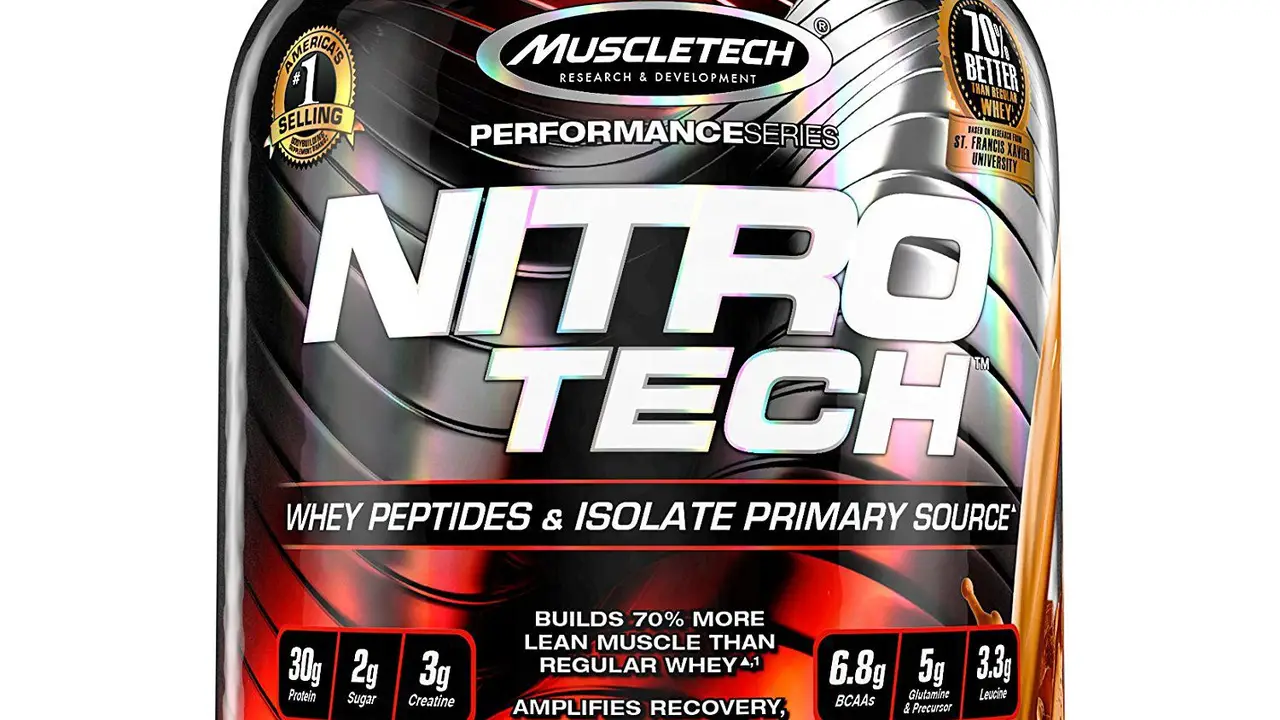7 Best Habits for a Healthier Lifestyle
Discover the importance of proper hydration for maintaining optimal health and well-being. Learn essential tips for staying hydrated throughout the day and explore product recommendations for improving your energy levels and overall health.

Why is Hydration So Crucial for Your Body?
Okay, let's dive right in. Hydration isn't just about quenching your thirst; it's absolutely vital for virtually every bodily function. Think of water as the ultimate lubricant and transport system for your body. It helps regulate temperature, cushions joints, transports nutrients, and flushes out waste products. When you're dehydrated, all these processes suffer, leading to a range of unpleasant symptoms and potential long-term health problems.
Specifically, here's a breakdown of what water does for you:
- Temperature Regulation: Sweating is your body's natural cooling mechanism, and it relies on water to work effectively. When you're dehydrated, you can overheat more easily, especially during exercise or in hot weather.
- Joint Lubrication: Water helps keep your joints lubricated, reducing friction and preventing pain. Dehydration can lead to stiff and achy joints.
- Nutrient Transport: Water carries nutrients to your cells, providing them with the fuel they need to function properly. Without enough water, your cells can become starved and sluggish.
- Waste Removal: Your kidneys rely on water to filter waste products from your blood and eliminate them through urine. Dehydration can strain your kidneys and increase your risk of kidney stones.
- Cognitive Function: Even mild dehydration can impair cognitive function, leading to difficulty concentrating, memory problems, and fatigue.
- Skin Health: Water helps keep your skin hydrated and supple. Dehydration can lead to dry, itchy skin and premature wrinkles.
Recognizing the Signs of Dehydration: How to Tell if You Need More Water
The tricky thing about dehydration is that you might not always realize you're experiencing it. Thirst is a late sign of dehydration, meaning you're already somewhat depleted by the time you feel thirsty. That's why it's important to be aware of other potential symptoms.
Here are some common signs of dehydration to watch out for:
- Thirst: As mentioned earlier, thirst is a primary indicator, but don't wait until you're parched to drink.
- Dry Mouth and Throat: A dry or sticky mouth and throat are classic signs of dehydration.
- Dark Urine: Your urine should be pale yellow. Darker urine indicates that your kidneys are trying to conserve water, which means you're not getting enough.
- Infrequent Urination: If you're not urinating regularly (at least every few hours), you might be dehydrated.
- Headache: Dehydration can trigger headaches in some people.
- Fatigue: Feeling tired and sluggish can be a sign that your body is lacking water.
- Dizziness or Lightheadedness: Dehydration can lower your blood pressure, leading to dizziness or lightheadedness, especially when you stand up quickly.
- Muscle Cramps: Electrolyte imbalances caused by dehydration can contribute to muscle cramps.
- Constipation: Water helps keep your stool soft and easy to pass. Dehydration can lead to constipation.
How Much Water Do You Really Need? Calculating Your Daily Hydration Needs
The "8 glasses a day" rule is a good starting point, but it's not a one-size-fits-all recommendation. Your individual hydration needs depend on several factors, including your activity level, climate, and overall health. A more personalized approach is to calculate your needs based on your weight.
Here's a simple formula to estimate your daily water intake:
- Convert your weight from pounds to kilograms: Divide your weight in pounds by 2.2. For example, if you weigh 150 pounds, you weigh approximately 68 kilograms (150 / 2.2 = 68).
- Multiply your weight in kilograms by 30-35 ml: This will give you your daily water intake in milliliters. For example, if you weigh 68 kilograms, you need approximately 2040-2380 ml of water per day (68 x 30 = 2040; 68 x 35 = 2380).
- Convert milliliters to liters: Divide your water intake in milliliters by 1000. In our example, you need approximately 2.04-2.38 liters of water per day.
Keep in mind that this is just an estimate. You might need to drink more water if you're exercising, living in a hot climate, or experiencing certain medical conditions. Listen to your body and drink when you're thirsty.
Beyond Water: Other Ways to Stay Hydrated Effectively
While water is the best choice for hydration, you can also get fluids from other sources, such as:
- Fruits and Vegetables: Many fruits and vegetables have a high water content, such as watermelon, cucumbers, strawberries, and spinach.
- Juices: Opt for 100% fruit or vegetable juices without added sugar.
- Sports Drinks: Sports drinks can be helpful for replenishing electrolytes lost during intense exercise. Look for options with low sugar content.
- Herbal Teas: Unsweetened herbal teas can be a refreshing and hydrating alternative to water.
- Broth-Based Soups: Soups made with broth can contribute to your daily fluid intake.
Avoid sugary drinks like soda and sweetened iced tea, as they can actually dehydrate you and contribute to weight gain.
Practical Hydration Tips for Daily Life: Making Hydration a Habit
Making hydration a habit can be easier than you think. Here are some practical tips to incorporate into your daily routine:
- Carry a Water Bottle: Keep a reusable water bottle with you throughout the day and refill it regularly.
- Set Reminders: Use your phone or a water tracking app to set reminders to drink water throughout the day.
- Drink Water Before Meals: Drinking a glass of water before meals can help you feel fuller and stay hydrated.
- Keep Water Visible: Place water bottles in visible locations, such as on your desk or in your car, to remind you to drink.
- Make it Flavorful: Add slices of fruit, vegetables, or herbs to your water to make it more appealing. Try lemon, cucumber, mint, or berries.
- Drink Water After Exercise: Replenish fluids lost during exercise by drinking water or a sports drink.
- Monitor Your Urine: Pay attention to the color of your urine to gauge your hydration level.
Hydration Products Recommendations: Bottles, Filters, and More
There are tons of products out there designed to help you stay hydrated. Here are a few recommendations, with pricing and usage scenarios:
Reusable Water Bottles: The Cornerstone of Daily Hydration
Reusable water bottles are a fantastic way to reduce plastic waste and ensure you always have water on hand. Here are a few options:
- Hydro Flask: A popular insulated stainless steel bottle that keeps drinks cold for up to 24 hours and hot for up to 12 hours. Price: $30-$50. Usage Scenario: Ideal for everyday use, hiking, camping, and travel. Comparison: Offers excellent insulation compared to plastic bottles. More expensive than plastic but more durable and environmentally friendly.
- Nalgene Tritan Bottle: A durable and BPA-free plastic bottle that's lightweight and easy to carry. Price: $10-$20. Usage Scenario: Great for everyday use, gym, and outdoor activities. Comparison: Less expensive than stainless steel options but doesn't insulate as well.
- Glass Water Bottle (Lifefactory): A glass bottle encased in a silicone sleeve for added protection. Price: $20-$30. Usage Scenario: Perfect for those who prefer to drink from glass. Comparison: Offers a clean taste but can be more fragile than plastic or stainless steel.
Water Filters: Ensuring Water Purity and Taste
If you're concerned about the quality of your tap water, a water filter can be a great investment.
- Brita Water Filter Pitcher: A classic pitcher that filters out chlorine, lead, and other impurities. Price: $20-$40. Usage Scenario: Ideal for home use. Comparison: Relatively inexpensive and easy to use. Requires filter replacements.
- Lifestraw Personal Water Filter: A portable water filter that removes bacteria, parasites, and microplastics from water sources. Price: $20-$30. Usage Scenario: Perfect for hiking, camping, and travel in areas with questionable water quality. Comparison: Lightweight and convenient for outdoor use. Doesn't filter out chemicals.
- Berkey Water Filter: A high-end water filter system that removes a wide range of contaminants. Price: $200-$400. Usage Scenario: Suitable for home use and emergency preparedness. Comparison: More expensive than other options but offers superior filtration.
Hydration Tracking Apps: Staying on Top of Your Goals
Several apps can help you track your water intake and stay motivated to drink more water.
- Water Reminder - Drink Tracker: A simple and user-friendly app that sends reminders to drink water throughout the day. Price: Free with in-app purchases. Usage Scenario: Ideal for daily use. Comparison: Easy to use and provides helpful reminders.
- Plant Nanny: A fun and engaging app that uses a virtual plant to encourage you to drink water. Price: Free with in-app purchases. Usage Scenario: Motivating for those who enjoy gamification. Comparison: Makes hydration fun and interactive.
- MyFitnessPal: A comprehensive health and fitness app that allows you to track your food intake, exercise, and water consumption. Price: Free with premium subscription options. Usage Scenario: Suitable for those who want to track multiple aspects of their health. Comparison: Offers a wide range of features but can be overwhelming for some users.
The Long-Term Benefits of Proper Hydration: Investing in Your Future Health
Staying adequately hydrated is an investment in your long-term health and well-being. By making hydration a priority, you can improve your energy levels, boost your cognitive function, support your digestive health, and reduce your risk of chronic diseases. So, grab that water bottle and start sipping your way to a healthier, happier you!
:max_bytes(150000):strip_icc()/277019-baked-pork-chops-with-cream-of-mushroom-soup-DDMFS-beauty-4x3-BG-7505-5762b731cf30447d9cbbbbbf387beafa.jpg)






